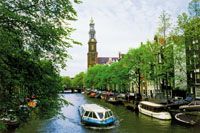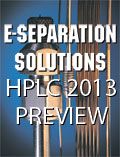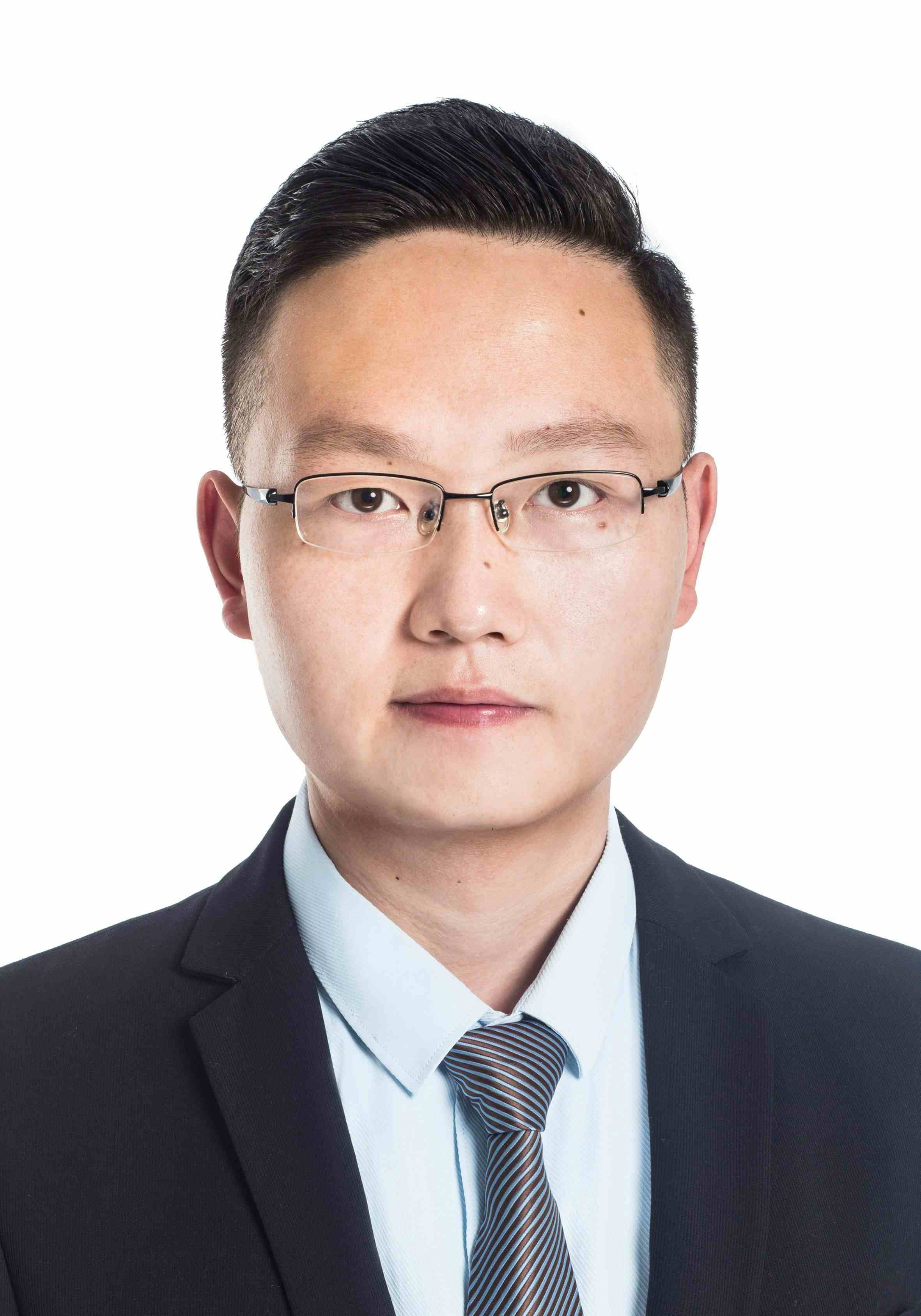HPLC 2013
A preview of HPLC 2013.

The International Symposium on High Performance Liquid Phase Separations and Related Techniques — HPLC 2013 — will take place at the Amsterdam RAI Conference Centre, Amsterdam from June 16–20 2013. HPLC 2013 is an international symposium focusing on the latest developments in high performance liquid chromatography (HPLC) and complementary separation techniques such as capillary electrophoresis, field-flow fractionation (FFF) and supercritical fluid chromatography (SFC). Hyphenated techniques that play a pivotal role in HPLC will be covered extensively, as well as the latest developments in microfluidics and lab-on-a-chip techniques.
HPLC 2013 will cover the most important applications and advances in theoretical studies in HPLC and provides valuable resources for separation scientists seeking practical solutions and to extend their understanding of the subject. The symposium will consist of lectures, tutorials and short courses in high performance liquid chromatography (HPLC) and will be divided into three distinct areas: HPLC MS 2013, HYPERformance LC and High Impact LC.
HPLC MS 2013 will focus on liquid chromatography mass spectrometry (LC–MS) and offers attendees the opportunity to boost their knowledge in both disciplines. Throughout the symposium one of the parallel sessions (featuring18 keynote lectures and 39 submitted oral presentations) will be dedicated to LC–MS. Topics covered will include mass spectrometry, ionization methods, quantitation, LC–MS, CE–MS, LC–MS of small- and large molecules and data handling.
The HYPERformance LC component will consist of 28 Keynote lectures and 24 oral presentations focusing on state-of the-art techniques, applications and theory in the core areas of HPLC from the leading experts in these fields. Topics will include stationary phases, fundamentals, instrumentation, selectivity, electromigration, chemometrics and LC×LC.
High Impact LC will involve 16 Keynote lectures, 35 oral presentations and 7 discussions and is a programme dedicated to challenging the HPLC community to identify directions of future research and innovation and solve problems that could hinder such advances. There are seven areas that will be investigated: metabolomics, environmental, proteomics, polymers, food, pharmaceutical, and forensics. Each section will have an expert who will outline the most important goals in his or her field and how analysis by HPLC can contribute. This is followed by a response on what is currently possible and how this research could possibly develop and the obstacles that need to be overcome.
Education is a core concept throughout HPLC 2013 and in addition to the comprehensive scientific programme and 21 tutorials there are short courses on the Sunday 16 June 2013 covering sample preparation, retention mechanisms, LC–MS, including LC coupled with tandem mass spectrometry (MS–MS) and comprehensive two-dimensional liquid chromatography (LC×LC). A stellar cast of chromatographers will be presenting at HPLC 2013 and full details can be found at www.hplc2013.org.
The annual Csaba Horváth Award will be at stake for young talented scientists under 35 at the time of their lecture. Last year’s winner, Stefan Bruns from Marburg University (Germany) will present in the opening plenary session. A team of experts led by Gerard Rozing will select the best posters. The public may also vote on a popular poster award through a novel high-tech process. All contributing scientists can identify themselves as award candidates when submitting their abstracts.
An exhibition of leading HPLC and instrument and product vendors is an important part of the HPLC 2013 and will run in parallel with the conference. Over 50 exhibiting companies and 1200 participants are expected to attend. There will be about 200 oral presentations, 800 posters and 7 discussions. Lunches and refreshments are included in the conference fee.
HPLC 2013 is being co-chaired by Peter Schoenmakers and Wim Kok from the University of Amsterdam, The Netherlands. Peter Schoenmakers said:“We will give you all the good things that the HPLC series is known for, plus a lot more. There is a complete programme for everyone. The High-Impact LC sessions and the associated discussions with culminate in a specific set of goals for LC in the next five to ten years. By identifying research targets and educating a new generation this HPLC conference is aimed at the future.”
Amsterdam is the largest city and capital of The Netherlands and is famous for its vibrant and diverse nightlife. The RAI conference centre is easily accessible by public transport. The conference centre is a short train ride away from the much-acclaimed and easily accessible Schiphol airport.
Important deadlines include 1 January 2013 for oral presentations, 1 May 2013 for poster presentations and 1 March 2013 for discounted early bird registration.
E-mail:HPLC2013@caos.nl
Website:www.hplc2013.org
Extracting Estrogenic Hormones Using Rotating Disk and Modified Clays
April 14th 2025University of Caldas and University of Chile researchers extracted estrogenic hormones from wastewater samples using rotating disk sorption extraction. After extraction, the concentrated analytes were measured using liquid chromatography coupled with photodiode array detection (HPLC-PDA).
Polysorbate Quantification and Degradation Analysis via LC and Charged Aerosol Detection
April 9th 2025Scientists from ThermoFisher Scientific published a review article in the Journal of Chromatography A that provided an overview of HPLC analysis using charged aerosol detection can help with polysorbate quantification.
Removing Double-Stranded RNA Impurities Using Chromatography
April 8th 2025Researchers from Agency for Science, Technology and Research in Singapore recently published a review article exploring how chromatography can be used to remove double-stranded RNA impurities during mRNA therapeutics production.





